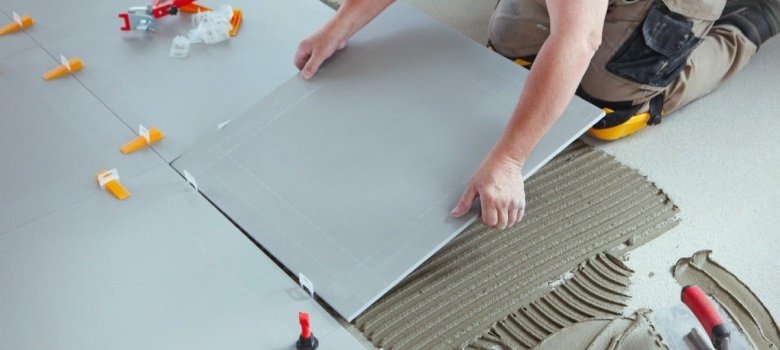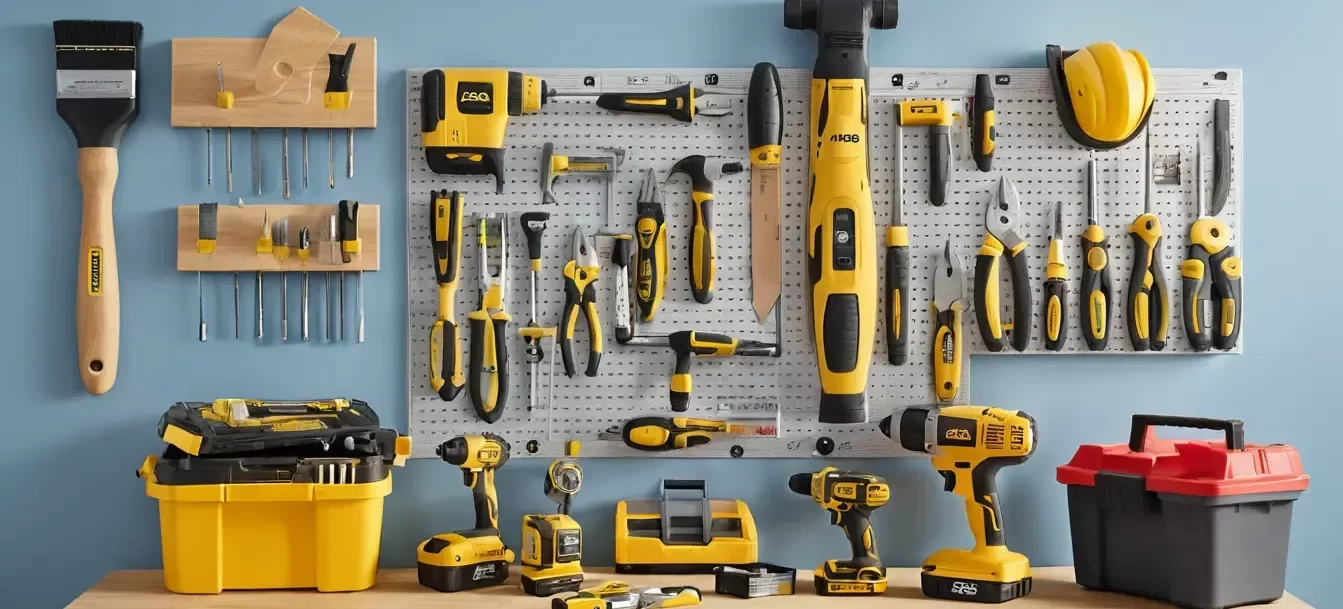Tiling can transform a room, bringing elegance, durability, and style to floors, walls, and other surfaces. However, finding the right tiler to bring your vision to life is essential, especially with the wide range of skills, specializations, and quality differences across tilers in Ireland. From evaluating craftsmanship to understanding costs, here’s a guide to help you find the perfect tiler for your project.
1. Define Your Tiling Needs and Project Scope
The first step to hiring the right tiler is to have a clear understanding of what you want to achieve. Consider these key aspects:
- Type of Tiling: Are you tiling a bathroom, kitchen, or another area? Different types of tiles (ceramic, porcelain, mosaic, marble) require specific skills, and some tilers specialize in particular styles.
- Design Preferences: Consider any specific tile patterns, layouts, or features you want, such as herringbone patterns, mosaic designs, or intricate trims.
- Project Timeline: Estimate when you need the project started and completed. Bear in mind that high-quality tiling can be a time-intensive job.
Having a clear project outline helps in getting accurate quotes and ensures that potential tilers understand your expectations.
2. Start Your Search for the Right Tiler
When you’re ready to look for a tiler, start by building a shortlist of reputable professionals in your area. Here are some effective methods:
- Personal Recommendations: Ask friends, family, or neighbors for referrals. Personal recommendations offer valuable insights into a tiler’s skill, reliability, and professionalism.
- Online Platforms: Websites like Rated People, Tradesmen.ie, and Houzz Ireland provide listings and reviews for tilers across the country. Reading online reviews can help you gauge the quality of their work.
- Social Media: Many skilled tilers showcase their work on Instagram, Facebook, and Pinterest. Look for local hashtags like #IrishTiler or #IrelandTiling to discover tilers near you and get an idea of their style and capabilities.
Compile a shortlist of three to five tilers whose work aligns with your project goals.
3. Evaluate Experience, Qualifications, and Certifications
In Ireland, tiling doesn’t have a mandatory licensing requirement, but experience, references, and qualifications are still essential indicators of quality.
- Experience: Ask each tiler about their years of experience and specific types of projects they’ve completed. A tiler who specializes in the type of work you need (bathrooms, kitchens, large commercial floors, etc.) will be more likely to deliver the results you want.
- Portfolio and References: Request to see a portfolio or examples of similar projects they’ve completed. A skilled tiler will often have a gallery of finished work to share with clients. Contacting previous clients is also a great way to learn about the tiler’s punctuality, work ethic, and ability to meet deadlines.
- Training or Certification: While certification isn’t required, many experienced tilers hold additional qualifications, such as NVQs (National Vocational Qualifications) in tiling. This can be an added assurance of their expertise, especially for more intricate or high-stakes tiling jobs.
4. Request Detailed Quotes and Compare
Once you’ve narrowed down your list, request detailed quotes from each tiler. A good tiler will be willing to visit the site, discuss your needs, and provide an accurate, itemized quote. The quote should cover:
- Labour Costs: Most tilers charge by square meter or by the day, depending on the size and complexity of the job.
- Materials: Confirm whether the quote includes the cost of tiles, grout, adhesive, and other materials, or if you’ll need to purchase these separately. Some tilers offer discounts on materials if they buy them on your behalf.
- Additional Costs: Some projects may require additional preparation, such as leveling floors, repairing walls, or removing old tiles. These services should be clearly itemized in the quote.
- Timeline: Ensure the quote includes an estimated start and completion date to avoid unnecessary delays.
Be wary of extremely low quotes, as these can sometimes indicate a lack of experience or the use of substandard materials. Conversely, overly high quotes should be justified by superior craftsmanship or use of premium materials.
5. Check for Insurance and Warranty Options
While tiling may not be as high-risk as other types of renovations, having a tiler with insurance can still be crucial in case of accidents, property damage, or unforeseen issues.
- Public Liability Insurance: Ask if the tiler has public liability insurance, which can cover damage to your home during the project.
- Workmanship Warranty: Many reputable tilers offer a warranty on their work, covering any issues that arise within a specific period after completion. A warranty can give you peace of mind and protect you from having to pay for repairs if problems emerge shortly after the tiling is done.
6. Review the Contract and Payment Terms
Before committing to a tiler, it’s essential to have a clear and well-defined contract. The contract should cover:
- Scope of Work: Specify which rooms, surfaces, and areas will be tiled, including any decorative elements, finishes, or special designs.
- Payment Schedule: Most tilers will require a deposit upfront, with the remaining balance paid upon completion. Avoid paying the full amount in advance, and agree on a payment plan that aligns with project milestones.
- Contingency Plans: Include clauses that outline procedures for handling unexpected delays or changes, such as supply shortages, weather disruptions, or unforeseen structural issues.
- Termination Clause: This clause allows either party to exit the contract under specific conditions, which can be helpful if the project isn’t progressing as planned.
A contract ensures transparency and protects both parties, so don’t hesitate to clarify any terms you don’t understand.
7. Communicate Regularly During the Project
Once your tiler starts the project, staying involved is crucial to ensure the work proceeds smoothly and meets your expectations. Arrange brief check-ins every few days, or at major milestones, to review the progress and address any questions.
- Quality Control: Examine the work as it progresses to catch any mistakes or misalignments early on. Don’t hesitate to ask questions or raise concerns if something doesn’t look right.
- Flexibility: Tiling projects sometimes face minor adjustments, such as unexpected measurements or extra materials. Being flexible with these small changes, while ensuring they stay within the budget, will help maintain a good working relationship with your tiler.
8. Final Walkthrough and Inspection
Once the tiling work is complete, do a detailed inspection with your tiler. Check for the following:
- Alignment and Spacing: Ensure tiles are aligned correctly, with even spacing and consistent grout lines.
- Grouting and Sealing: Make sure grouting is smooth and complete, with no gaps or cracks. Check if any edges or areas require additional sealing.
- Cleaning and Finishing Touches: The tiler should leave the area clean and polished, with no leftover adhesive, grout smudges, or tile dust.
If you’re satisfied with the final result, process the last payment, and don’t forget to ask for a receipt, along with any warranty documentation, if applicable.
9. Leave a Review and Provide Feedback
Finally, share your experience with others by leaving a review online. This feedback helps other homeowners find skilled tilers and also provides the tiler with valuable testimonials to grow their business. Include specific details in your review, such as punctuality, quality of work, and adherence to budget, to give future clients an honest, well-rounded view.
Avoid Common Mistakes When Hiring a Tiler
To wrap up, here are some common pitfalls to avoid when hiring a tiler in Ireland:
- Skipping References: Always check references to confirm that a tiler is reliable and skilled.
- Ignoring Insurance: Without insurance, any accidental damage to your property may end up costing you.
- Assuming Price Equals Quality: A higher quote doesn’t always mean better quality. Focus on experience and craftsmanship instead.
- Neglecting the Contract: Verbal agreements can lead to misunderstandings; always have a signed contract.
Final Thoughts
Hiring a skilled tiler can make all the difference in creating a high-quality, durable finish in your home. With clear planning, careful vetting, and regular communication, you can ensure your tiling project runs smoothly and delivers beautiful, long-lasting results. Happy tiling!



